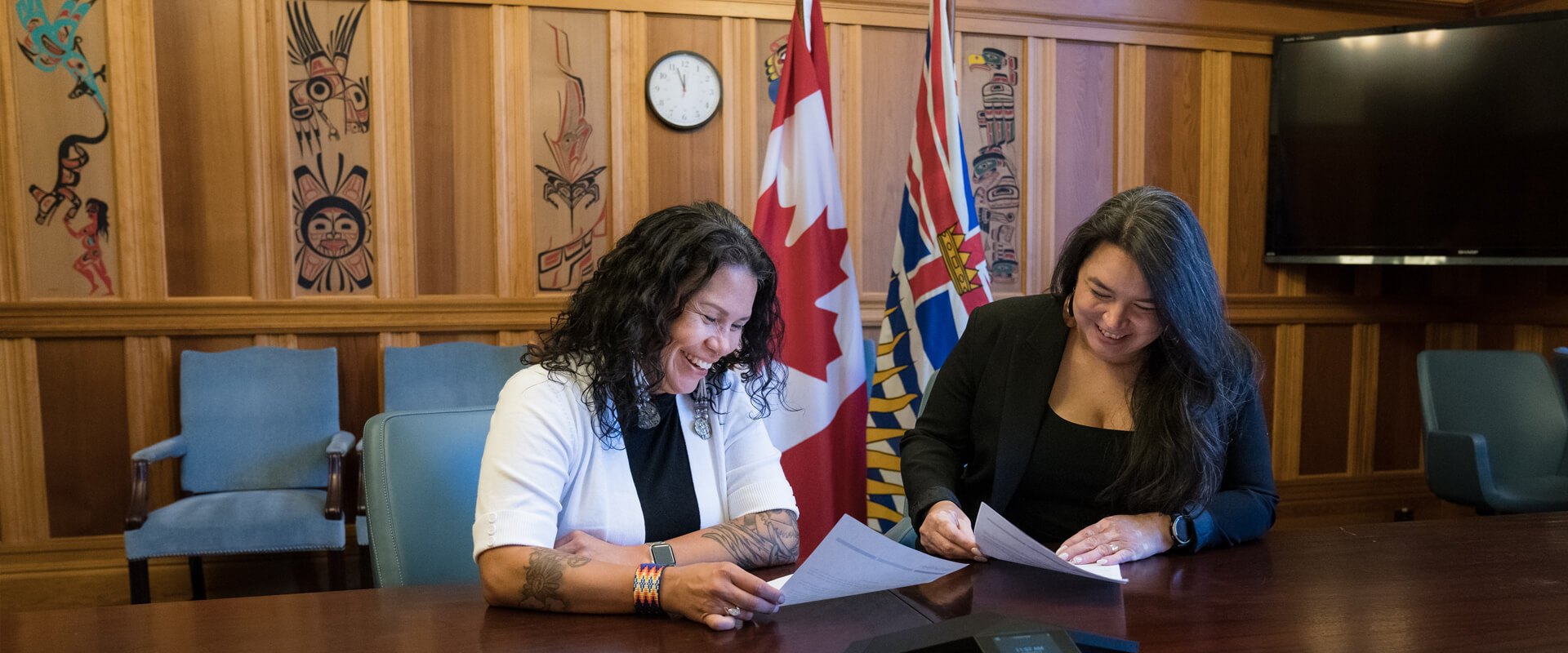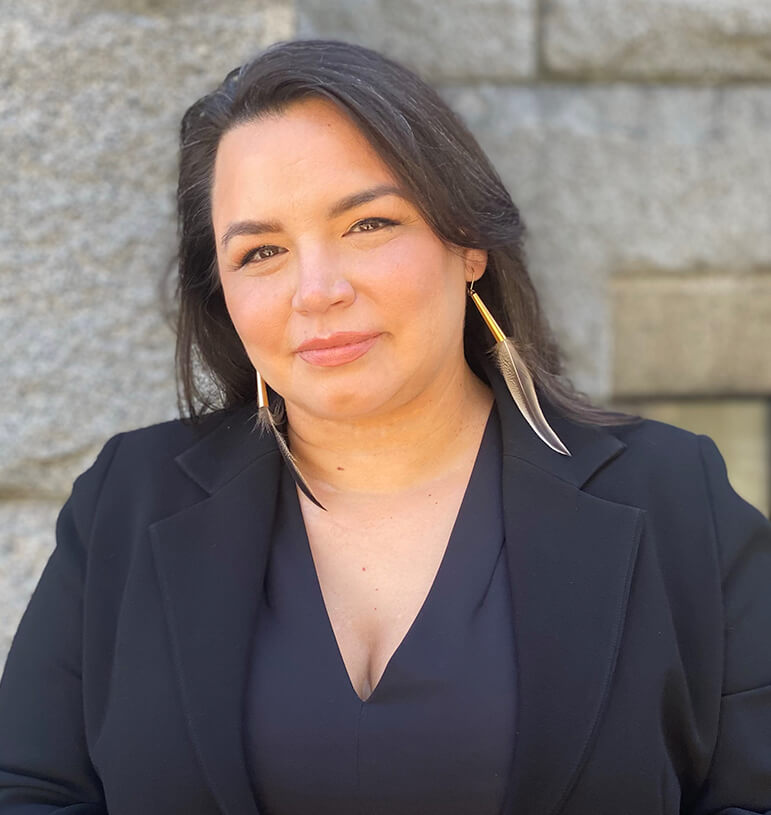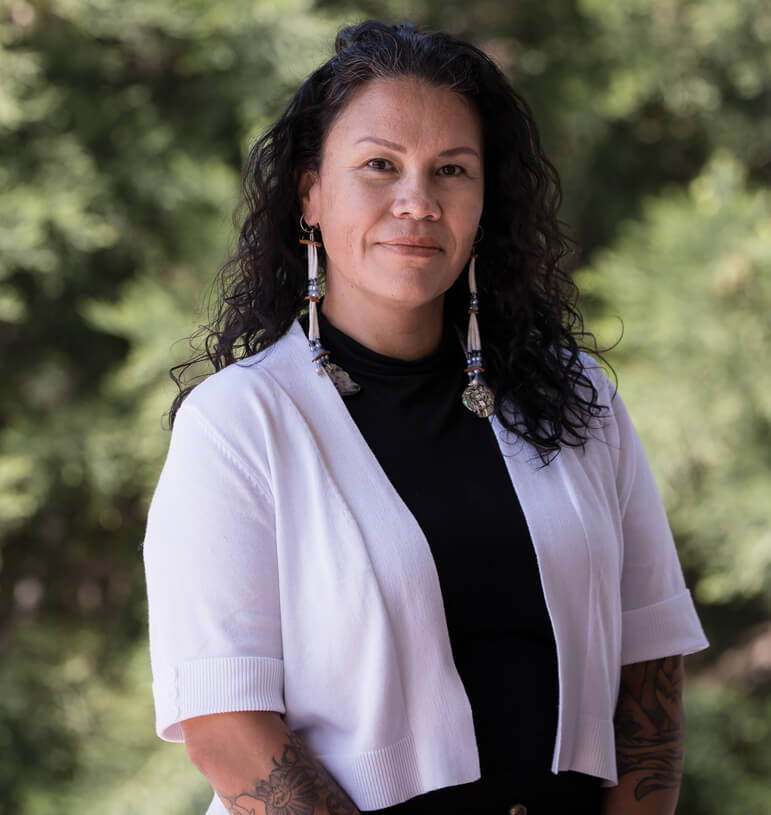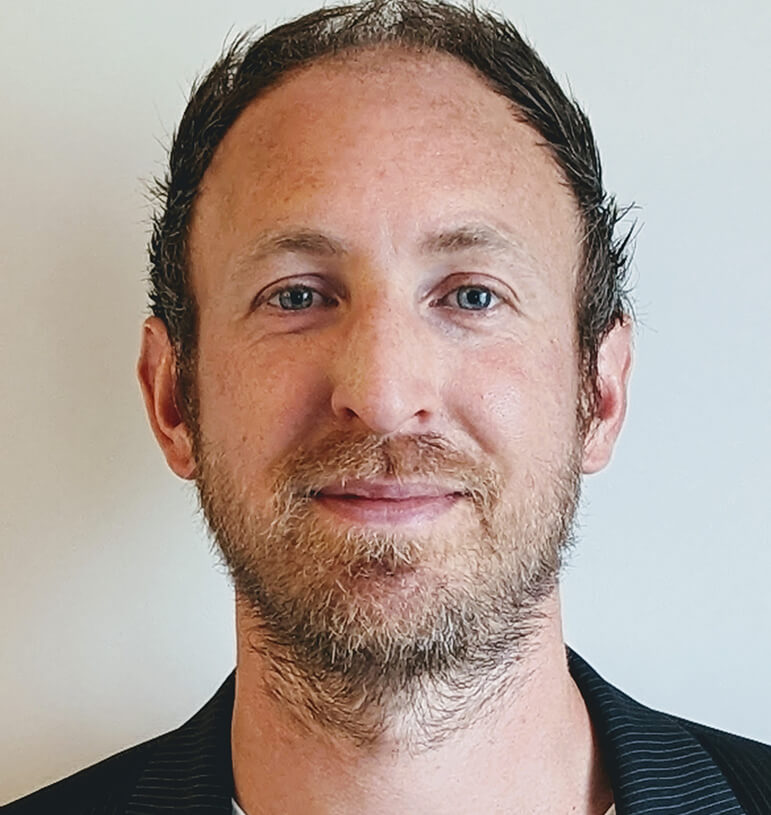
Declaration Act
Secretariat Leadership
Meet the Declaration Act Secretariat
Jessica Wood/Si Sityaawks
Deputy Minister
Si Sityaawks – (Woman who creates change) is from the Gitxsan and Tsimshian First Nations with extended roots among the Tahltan and Nisga’a Nations.
Currently serving as Deputy Minister of the Declaration Act Secretariat, Jessica is leading British Columbia’s cross-ministry work to align provincial laws with the UN Declaration on the Rights of Indigenous Peoples in consultation and cooperation with Indigenous Peoples. Jessica recently became the first Indigenous Person to serve as Deputy Minister in the Province of British Columbia.
Jessica previously served as Assistant Deputy Minister for the Reconciliation Transformation and Strategies Division with the Ministry of Indigenous Relations and Reconciliation where she was responsible for the adoption and implementation of the United Nations Declaration on the Rights of Indigenous Peoples (The Declaration), the Truth and Reconciliation Commission of Canada’s Calls to Action, and learnings from relevant case law. As part of this transformation, she led, in collaboration with the First Nations Leadership Council, the development of legislation to implement the Declaration in provincial law. The Declaration on the Rights of Indigenous Peoples Act received Royal Assent in November 2019. Her division also led the development of the first Declaration Act Action Plan released in March 2022. The Plan was developed with Indigenous Peoples to ensure it reflects the priorities of Indigenous Peoples and outlines 89 specific actions every ministry will take over a five-year period.
Jessica was recently the second Policy Practitioner Fellow at UBC’s School of Public Policy and Global Affairs. She is an experienced community developer whose portfolios have focused on issues related to race relations, residential school, sexual health, sex work, Indigenous women and gendered violence. She was the first Indigenous woman in Canada whose work as a municipal social planner focused solely on the health and safety of sex workers and impacted communities, gendered and racialized violence, and the prevention of youth sexual exploitation.
Jessica has previously held positions working on the Residential School Settlement Agreement and the National Film Board Documentary Finding Dawn, a film about missing and murdered Indigenous women in Canada. Jessica is a long-time organizer with the Vancouver DTES Women’s Memorial March Committee.

Priscilla Sabbas-Watts/ c̓aʔaa
Assistant Deputy Minister of Legislative Transformation and Engagement
Priscilla’s traditional name is c̓aʔaa [sah-ah], which comes from the word c̓aʔaas, meaning to strip cedar from the cedar tree. She is from the Hiškʷiiʔatḥ (Hesquiaht) on the West Coast of Vancouver Island. Hiškʷiiʔatḥ is one of fourteen nations of the Nuučaan̓uƛ (Nuuchahnulth).
Priscilla is the Assistant Deputy Minister, Legislative Transformation and Engagement with the Declaration Act Secretariat. Within this role she plays a fundamental role supporting cross-government efforts to work in consultation and cooperation with Indigenous Peoples to align laws with the United Nations Declaration on the Rights of Indigenous Peoples (UNDRIP) as per section 3 of the Declaration on the Rights of Indigenous Peoples Act. Priscilla has served as a public servant for the past 20 years holding positions both within her Nation and within the provincial public service. She has previously served both as an elected councillor for Hesquiaht, and Vice President of the Nuu-chah-nulth Tribal Council. Within the BC Public Service Priscilla has held roles in the Ministry of Indigenous Relations and Reconciliation, the Ministry of Children and Family Development, and the BC Public Service Agency. Most recently she was the Executive Director of the Equity Diversity and Inclusion Branch at the BC Public Service Agency.
Priscilla lives in c̓išaaʔatḥ (Tseshaht) and Hupačasath territory in the Alberni Valley with her husband and three children.

Aaron Brown
Executive Director, Economics and Finance
Aaron Brown is the Executive Director supporting the Finance and Economics sector at the Declaration Act Secretariat.
Aaron’s ancestry is North-Western European and Indigenous: he is a member of the Misipawistik Cree Nation (Grand Rapids) in Northern Manitoba.
Aaron has worked for fifteen years in the B.C. Public Service, holding a variety of senior management roles across four ministries. Most recently, Aaron worked at the Ministry of Transportation and Infrastructure where he designed and developed the Passenger Transportation Accessibility Program which improves transportation services and experiences for the accessibility community. Prior to this, Aaron worked at the Treasury Board Secretariat and the Ministry of Children and Family Development.
In addition to helping to implement the Declaration Act across the B.C. Public Service, Aaron is interested in creating strategy and vision, assessing complex policy, and managing projects.
Aaron holds a Bachelor of Commerce Degree from the University of Victoria. He lives with his wife and two children (aged two and four so life is busy!) on the unceded traditional territory of the Lekwungen people (known today as the Songhees and Esquimalt Nations) in Victoria, B.C. and is grateful to live, work and play there.

Jackie Demerse-Abbasi
Executive Director, Social Justice and Policing
Jackie was born and raised on Treaty 4 territory in Saskatchewan, home of the Cree, Saulteaux, Nakota, Lakota, Dakota, and homeland of the Métis. She holds a Bachelor of Arts (Hons) and Masters in Public Administration from the University of Regina, and PhD (abd) from the University of Western Ontario specializing in multi-level governance, public policy, and Canadian politics. Jackie has a diverse background in both the public and academic sectors. Over the years, she has taught graduate and undergraduate courses in local government, public administration, and strategic planning. Most recently, Jackie held the role of Director of Indigenous Economic Development at the Ministry of Trade and Export Development with the Government of Saskatchewan. Prior to this, she was the Director, then Acting Executive Director of the Status of Women Office and Senior Legislative Analyst with the Ministry of Government Relations.
Jackie has worked collaboratively with Indigenous communities, organizations and people on files spanning economic reconciliation, gender equity and gender-based violence including MMIWG2S+. And, as the daughter of a Sixties Scoop survivor, understands the cumulative impact of colonial policies and importance of connection/re-connection to community and Indigenous ways of knowing and being. She is married with two boys under the age of six and is grateful for the opportunity to live, work and play on the traditional territories of the Lekwungen speaking peoples, the Songhees and Esquimalt First Nations, in Victoria B.C.

